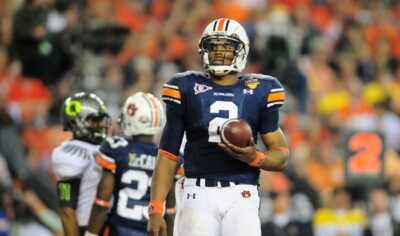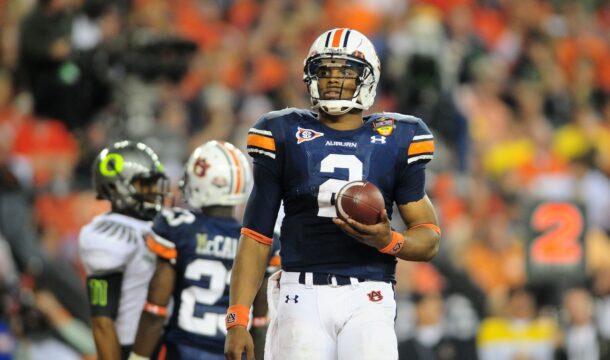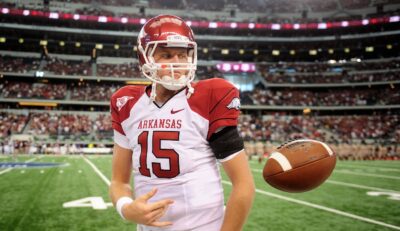New college football rules fans need to be aware of in 2019
By SDS Staff
Published:
College football kicks off in just two days, as Florida and Miami play in Orlando for Week 0.
Every year, the game we so dearly love tweaks its rules, and there are a few new rules fans need to know about before the 2019 season.
In February, the NCAA football rules committee met in Indianapolis and voted to recommend a few changes for this season. The final changes were approved in April by the Playing Rules Oversight Panel. 2019 is technically an “off year” for any rules changes other than those that directly impact player safety.
Here are some of the key rule changes for this season:
Targeting Rules Change
The biggest change for 2019 revolves around the targeting foul. Currently, players who are guilty of targeting are ejected from the game and suspended for the the next half of play. This year, the rules committee further strengthened this rule, and it focuses on repeat offenders. Players who are ejected for three or more targeting penalties will be suspended for the entire next game, not just the next half.
How instant replay is used in targeting fouls is changing, too. While all targeting calls were already reviewed, the new rule states each targeting call must be either “confirmed” or “overturned” upon review. If any part of the targeting call cannot be confirmed, the call on the field is supposed to be overturned.
Overtime Rules Change
Thanks to the LSU-Texas A&M seven-overtime game, the NCAA has tweaked the overtime rules. The rules committee stated that they are concerned for player safety because players can become so fatigued if overtime drags on so long.
Starting in 2019, the NCAA is still calling for overtimes to remain the same as long as those games do not exceed four overtimes. Starting with the fifth overtime period, the NCAA is making teams alternate two-point attempts. The ball will no longer start at the 25-yard line in such scenarios. The NCAA is also calling for two-minute rest periods after the second and fourth overtime periods.
Wedge Blocking on Kickoffs
The NCAA has banned two-man wedges on all kickoffs. It will carry a 15-yard penalty. The wedge is not illegal during an onside kick or when the play results in a touchback, but all two-man wedges are illegal.
Blindside Blocks
In the past, blindside blocks have been outlawed as a targeting foul if the contact was to the head or neck area. Now, all blindside blocks (no matter the location) are personal fouls, 15-yard penalties. Moving forward, if the contact is to the head or neck area, it’s still deemed a targeting foul. However, now, it’ll be a personal foul even if it is not a targeting foul.
Saturday Down South reports and comments on the news around the Southeastern Conference as well as larger college football topics.







